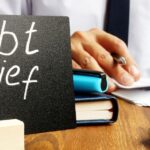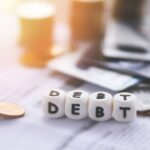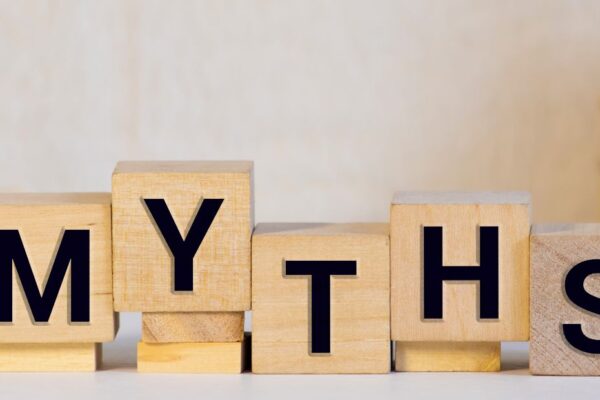Finances can feel a bit like that overflowing junk drawer – a jumble of receipts, forgotten subscriptions, and that “oh-right” gym membership you never use. But just like a good decluttering session sparks joy, taking control of your finances can be incredibly empowering.
Think of it as giving your money a fresh start. This isn’t about feeling overwhelmed or depriving yourself – it’s about gaining clarity and making your money work for you, not the other way around. We’re going to knead out those hidden expenses, polish up your savings plan, and leave you feeling financially zen.
Why You Need To Clean Up Your Finances Matters?
Before we jump into the nitty-gritty of the checklist, let’s talk about why cleaning up your finances is so important. Think of it like cleaning out your closet – it might seem like a daunting task at first, but once you’ve decluttered and organized, you’ll feel lighter, more in control, and ready to take on whatever comes your way. The same goes for your finances.
By taking the time to clean up your financial house, you can:
- Reduce Stress: Nothing weighs on your mind quite like money worries. Cleaning up your finances can help alleviate that stress and give you peace of mind.
- Reach Your Goals: Whether you’re saving for a vacation, a down payment on a house, or your retirement, having a clear financial picture can help you reach your goals faster.
- Prepare for the Unexpected: Life is full of surprises, and having your finances in order can help you weather any storm that comes your way.
- Build Wealth: By eliminating wasteful spending, paying off debt, and investing wisely, you can set yourself up for long-term financial success and build wealth for the future.
Your Essential Check-List to Get Your Money on Track
1. Take Stock of Your Financial Situation
The first step to clean up your finances is to take stock of where you stand. Gather all of your financial documents – bank statements, credit card bills, investment accounts, etc. – and take a good, hard look at them.
Ask yourself:
How much debt do I have?
What are my monthly expenses?
How much do I have saved for emergencies?
Am I on track for my retirement goals?
Are there any areas where I’m overspending?
Once you have a clear picture of your financial situation, you can start to make a plan for improvement.
2. Create a Budget (and Stick to It)
One of the most important tools in your financial clean-up arsenal is a budget. A budget helps you track your income and expenses, identify areas where you can cut back, and ensure that you’re living within your means.
Start by listing all of your sources of income, then subtract your fixed expenses (like rent/mortgage, utilities, and insurance) and your variable expenses (like groceries, entertainment, and dining out). The goal is to ensure that your expenses don’t exceed your income – if they do, it’s time to make some adjustments.
And remember, a budget is only effective if you stick to it! Consider using budgeting apps or tools to help you stay on track.
3. Pay Off Debt
Want to pay off debts? Debt can be a major roadblock on the path to financial freedom, so it’s important to tackle it head-on. Start by making a list of all of your debts, including the total amount owed, the interest rate, and the minimum monthly payment.
Then, develop a strategy for paying off your debts. You might choose to focus on paying off the debt with the highest interest rate first (the “avalanche” method) or the smallest balance first (the “snowball” method). Whichever approach you take, the key is to stay consistent and avoid taking on any new debt in the process.
4. Build an Emergency Fund
Life is full of unexpected expenses – car repairs, medical bills, job loss – and having an emergency fund can help you weather these storms without derailing your financial goals. Aim to save at least three to six months’ worth of living expenses in an easily accessible account, like a high-yield savings account or a money market fund.
5. Review and Update Your Insurance Coverage
Insurance might not be the most exciting topic, but it’s an important part of your financial plan. Take some time to review your insurance coverage – health, auto, home/renters, life, disability, etc. – and make sure you have adequate protection in place for your needs. Update your coverage as necessary to ensure that you’re adequately protected against any potential risks.
6. Maximize Your Retirement Savings
It’s never too early – or too late – to start saving for retirement to clean up your finances. Take advantage of employer-sponsored retirement plans like 401(k)s or 403(b)s, especially if your employer offers matching contributions. If you’re self-employed or your employer doesn’t offer a retirement plan, consider opening an IRA or Roth IRA.
And don’t forget to regularly review and adjust your investment allocations to ensure that your retirement savings are on track to meet your goals.
Celebrate Your Progress
Last but not least, don’t forget to celebrate your victories, no matter how small. Paying off a credit card, reaching a savings milestone, and sticking to your budget – these are all reasons to pat yourself on the back. Remember, Rome wasn’t built in a day, and neither are healthy financial habits.
And there you have it – the ultimate checklist to clean up your finances! It might seem like a lot to take in but remember, you don’t have to tackle it all at once. Take it one step at a time, stay consistent, and before you know it, you’ll be well on your way to financial freedom.
If you’re struggling with debt and need expert guidance, MDR Financial is here to help. Our experienced team offers personalized debt relief services to help you regain control of your finances. From debt consolidation to negotiation with creditors, we’ll work with you to create a plan that fits your unique situation. Take the first step towards financial freedom today – contact MDR Financial for a free consultation and start your journey to a debt-free life.











